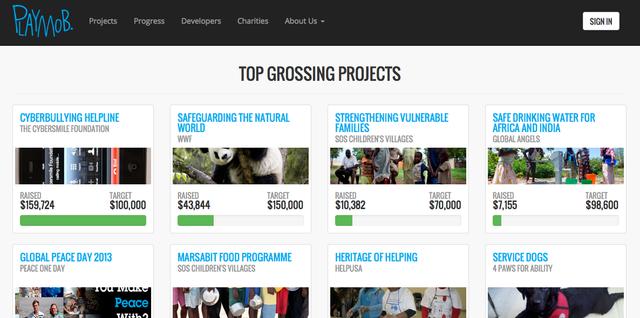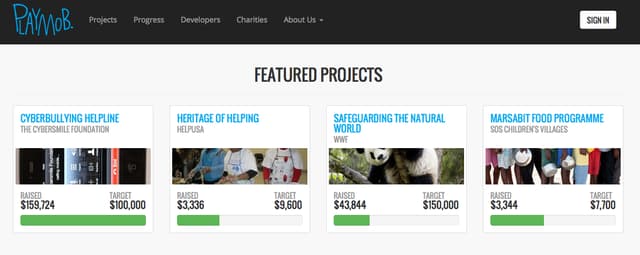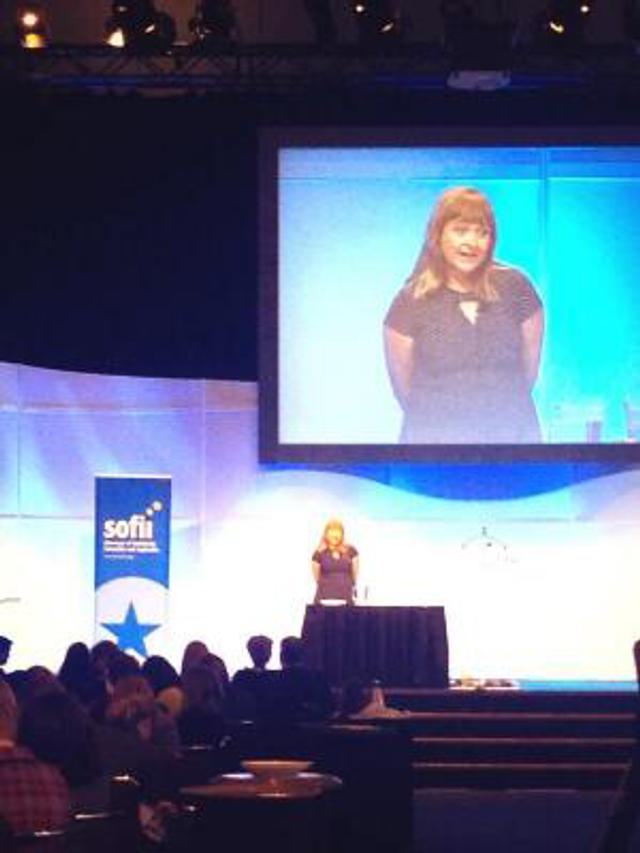Playmob: a gaming platform to raise money for global projects
- Exhibited by
- SOFII
- Added
- February 26, 2014
- Medium of Communication
- Online.
- Target Audience
- Individuals.
- Type of Charity
- Country of Origin
- UK.
- Date of first appearance
- October, 2012.
SOFII’s view
Could this simplified way of using online gaming to raise much-needed funds be the new big idea for fundraisers? SOFII looks forward to hearing more in the future.
Jude Ower, Playmob
Name of exhibitor
Teva Harrison, director of marketing, The Nature Conservancy of Canada.
Summary / objectives
To raise £100 billion by 2016.
Background
Playmob began as a game developer for corporate, educational and government clients. When they were approached by charities to create game-based fundraising campaigns, they became a matchmaker between game developers and charities by creating a platform that allows the developers to support global charitable projects.
The campaigns use existing games – with existing communities – rather than starting from scratch as these are more successful. Studios chose a project to support and an item from their game to sell – a potential $100 billion market – that enhances the players’ experience. .
It is a simple process, a game studio can sign up with their game, test and launch a charity campaign in a matter of hours. All the charity needs to do is promote the campaign and make sure the item fits with them.
Special characteristics
People don’t have to change their behaviour, they are doing something they love and now they can give some money at the same time and increase the feel-good factor. They can give every day and easily. Participating charities can reach people who wouldn’t normally give, across a range of ages and demographics. A minimum of 50 per cent of sale of virtual goods goes to the charity.
Results
In February 2014, 57 charities and 17 are using the platform. There are 20 campaigns across the globe, $236,885 has been raised for charities and 255,888 virtual items have been sold.
In one of the most successful campaigns so far, Sims Social, offered a virtual WWF stuffed panda toy for a month. Players bought the panda for their in-game characters for $1.75 and it raised more than $40,000 for WWF.
Merits
It’s brilliant because it’s really simple and it works. Instead of building an earnest game for a charity, that the charity then must maintain and promote, usually to their existing list, they’re integrating the charity into an existing game. They’re adding time-limited, collectible virtual goods into popular games – for charity. This platform was launched during Autumn 2013 and is already raising very real money for the charities using it.
SOFII's I Wish I'd Thought Of That IWITOT Toronto 2013 – Teva Harrison
Final notes
Playmob has raised $2 million in funding to date and the startup works with games studios like Niantic, EA, and Rovio to engage millions of players to take positive social action. The London-based company has raised over $1.2 million for charities and nonprofits like WWF, Oxfam and The Cybersmile Foundation. Jude Ower, founder of Playmob was awarded an MBE in 2016 for services to entrepreneurship.
Jude said this in 2019:
‘When we started Playmob, we began by running in-game fundraisers, which raised millions of dollars for global causes. However, we recognised a bigger opportunity to become an ethical media platform, releasing playable-ads through advertising slots in mobile games, teaching players about global issues and inspiring them to take action, whilst still donating a percent of media spend to good causes. We adopted this model as many players wanted to do more and we believe educating players while delivering impact via mobile games make global issues more personal and relevant to the player.’
Also in Categories
-



















